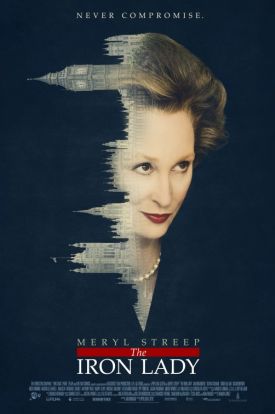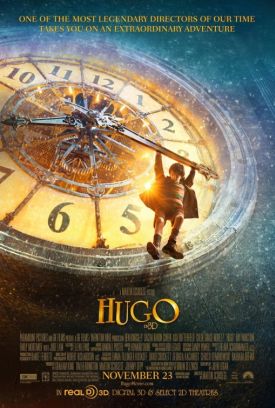Progressive Derangements
From The American SpectatorThey’ve taken it down now but if, shortly before Christmas, you had checked under Frequently Asked Questions on the Internet Movie Data Base’s entry for The Iron Lady you would have found only one FAQ: “Is this movie connected to the movie Iron Man? Spoiler Alert! No it isn’t. Far from being a cartoon movie about a suit of armor and its playboy occupant, it is actually Phyllida Lloyd’s biopic about Margaret Thatcher (now Baroness Thatcher of Kesteven), a former prime minister of Great Britain and Northern Ireland who was well known during her premiership (1979-1990) for many things, among them the soubriquet of the title and being the first woman in British history to hold that office of state. Yet there is something rather cartoonish about the movie, which ought to be known as The Irony Lady. For now, at least if Ms Lloyd (Mamma Mia!) has anything to do with it, the Iron Lady will also be known for suffering from a form of dementia which leads her to carry on conversations with her dead husband.
That’s movie history for you! So, too, when future generations of school children who have seen Steven Spielberg’s movie of Michael Morpurgo’s novel War Horse are asked what was at issue in World War I, they will answer that they don’t quite know but they’re pretty sure it was something to do with a horse. Well, the movies are under no more obligation to historical accuracy than they are to eschew sentimentality which, as Mr Spielberg’s movie reminds us — as all Mr Spielberg’s movies remind us — is their bread and butter. But the fact that The Iron Lady devotes at least half its length to a fanciful account of its iron heroine’s ironic infirmity suggests a historiographical purpose of its own. In this case it is the particularly interesting one of trying to reconcile the Iron Lady’s eleven-and-a-half-year ministry with the progressive view of history.
This it does by reducing her historical importance to her merely “historic” one as a female person. Back in the 1970s, when Lady Thatcher was rising to power and the feminists — who were later to disparage this particular example of strong womanhood for her conservatism — were telling us that the personal is the political, we weren’t to know that the converse was eventually to prove true as well. Nowadays the political, and therefore the historical, is practically limited to the personal, at least so far as the movies and the media culture generally are concerned. Living as we do under the “historic” presidency of Barack Obama, we can see this remarkable historical development also in the political struggle to replace him. As an ever-changing cast of potential Republican rivals has appeared in a seemingly endless series of what television calls “debates,” the public has shown a so-far unflagging interest in politics as a species of reality TV.
When in 1993 President Bill Clinton went on MTV and answered a question about his underpants, it came as a shock to people who thought this kind of thing incommensurate with the dignity of the office he held. Five years later, after Monica Lewinsky became a household name, people on both sides of the political divide found it natural to adopt the media’s approach to political life in the post-Cold War era as soap opera, and this is what it has remained as our political culture has taken the job of screening our potential leaders away from the parties and given it to the media. They, in turn, have made a game show out of the selection process, with the media’s question-masters in the starring role. Mr Clinton, our first genuine celebrity president, was as “historic” in his own way as Mr Obama, a celebrity John the Baptist to his celebrity Jesus who paved the way for him — as well as for the celebrity politics which has now become the norm.
At least the 42nd president had to earn, after a fashion, his historic status. The 44th was historic already on the day he took office for the sole and sufficient reason that his father was black. Not that his skin pigmentation would necessarily have been by itself enough to make him the historic figure he has become. Just as feminists once disdained to claim Margaret Thatcher as their own, just as Gloria Steinem once called Senator Kay Bailey Hutchison of Texas “a female impersonator” for holding the wrong political views, so President Obama would hardly qualify as our (historic) first black president (actually, Toni Morrison once prematurely conferred this title on Bill Clinton) if he were only black in the sense that Alan Keyes or Michael Steele or Herman Cain are black — which is to say black and non-progressive.
If history, as we have been told again and again by President Obama and other progressives, is on their side, it is only reasonable to suppose that historic firsts must conform to the progressive map of history or give up their claim to genuinely “historic” status. Margaret Thatcher may at first seem to be an exception to this rule. Ms Lloyd’s movie depends utterly for such success as it has had in Britain and is likely to have in America on the assumption that its subject is a figure of historical importance. Yet her historic achievement, in the film’s view, remains almost entirely limited to being the first of her sex to reach the top political job in the land and, subsequently, her ability to dominate her male cabinet colleagues. As the movie’s Margaret Thatcher (Meryl Streep) puts it at one point, politics “used to be about trying to do something. Now it’s about trying to be someone.” With supreme irony, the movie only allows its version of Mrs T. to be someone, namely the first woman prime minister, but not, except in the sketchiest of ways, to do anything.
The historical Margaret Thatcher, as it happens, did quite a lot. But on the substance of what she achieved, from getting inflation and government spending under control to her victory over Argentina in the Falklands conflict to her defeat of the National Union of Mineworkers which had broken the previous Conservative government, the movie has little or nothing to say. Indeed, after a perfunctory account of the Falklands war, it skips over the next seven years of her premiership with the help of random shots of newspaper headlines until we get to the fall of the Berlin Wall in 1989 and her own downfall a year later. The miners’ strike gets even more perfunctory treatment and is represented as if it came before the Falklands campaign rather than, as is in fact the case, after it. The opposition to her government is represented by images of rioting in the streets but without any real explanation of what the participants were rioting about.
You can understand why Ms Lloyd and her screenwriter, Abi Morgan (Shame), do this. Lady Thatcher was and remains an immensely divisive figure in Britain, and many on the “progressive” left there still hate her with a passion that has since been seen in our public life only in what Charles Krauthammer has called Bush Derangement Syndrome. That hatred and not her sex is the measure of her historical importance. It is the price she has paid for doing things that no one else, male or female, was willing or able to do but which needed to be done. And the reason she is so hated is that this achievement continues to stand as a refutation of the progressive view of history which her sex and her sex alone may be taken to confirm. Progress towards a unisex world is presumptively progressive; progress towards fiscal and monetary restraint, privatization of big government programs and a renewal of British military and diplomatic influence in the world could only be retrogression to those who call themselves “progressives.”
Thus, any celebration of the Iron Lady’s genuine achievement, as opposed to her merely symbolic one, would have alienated so much of the movie’s potential audience as to have seriously endangered its success at the box office. Much safer to focus on the pathos of her dotage. The performance of Miss Streep in the title role will also be popular and, as a feat of impersonation, it is, indeed, most impressive. Yet this technical accomplishment is also part of the movie’s — and the movies’ — purpose to mislead. The more precise movie-makers are in their recreation of the physical past, and they have grown to be very precise indeed, the more slapdash they have become about the moral past. For history remains important to progressives not only because it is assumed to have a “side” but also because it is their only way of making sense of the turbulent present as the gateway to a golden utopian future. Lady Thatcher’s story can thus be made to fit into the progressive narrative, regardless of her accomplishments, just as Barack Obama’s does, regardless of his failures. Like so much else about the progressive enterprise, movie sentimentality is a win-win proposition for these people.
Discover more from James Bowman
Subscribe to get the latest posts to your email.







